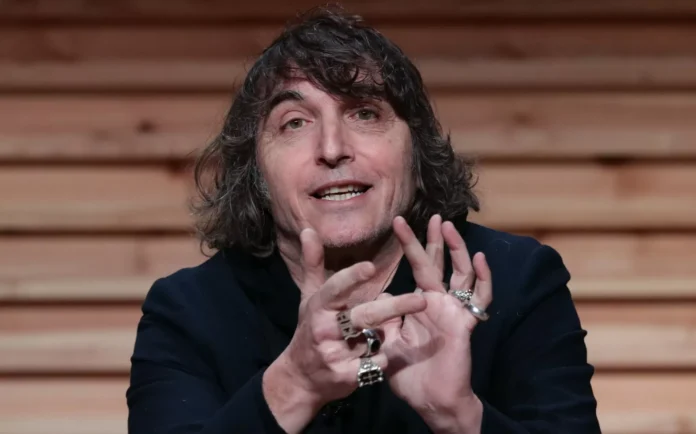“What the hell does antifascism have to do with Sanremo?”: we ask ourselves, as well, dear Cruciani.
The controversy surrounding the Italian music festa musicale, Sanremo, has taken a surprising turn this year, with the unexpected introduction of antifascist symbols and statements. For those who are not familiar with the festa musicale, Sanremo is an iconic event that brings together the best of Italian music and is watched by millions of people all over the world. It has always been a celebration of Italian culture, but this year, it seems that politics have taken center stage.
On February 7th, during the second night of the festa musicale, singer-songwriter Diodato performed his song “Fai rumore” (Make noise) wearing a sweatshirt with the words “Antifascista sempre” (Always antifascist) written on it. This unexpected and bold statement sparked heated debates, both for and against, on social media and in the Italian political landscape.
But what does antifascism have to do with Sanremo? The answer is simple: nothing. And yet, it seems that the organizers of the festa musicale have decided to use this platform to make a statement. But is this the right platform for it?
To answer that question, we need to first understand what antifascism is and why it is relevant in today’s society. Antifascism is the opposition to fascist ideologies and movements, which promote authoritarianism, nationalism, and often racism. It is a belief that stands against any form of discrimination and promotes equality and freedom for all. And in a world where hate speech and discrimination seem to be on the rise, antifascism becomes more than just a political stance – it becomes a moral duty.
So why is it being brought into a music festa musicale? Isn’t Sanremo supposed to be a celebration of music and culture, a moment of unity and joy for all? Well, it is, and it should remain so. But the truth is, when artists have the platform to reach millions of people, they have the power to spread important messages and create awareness. And that is exactly what Diodato did with his performance.
Furthermore, the history of Sanremo itself is intertwined with the history of Italy, a country that has suffered greatly under fascist regimes. It is a history that should not be forgotten or ignored, but instead, it should be remembered and learned from. And what better way to do that than through music?
But this is not just about the influence of art and the power of music to convey important messages. This is also about the responsibility of public figures in using their platform for good. In a world where we are bombarded with negative news and divisive rhetoric, it is refreshing to see someone using their voice to promote unity and equality.
The fact that Diodato’s statement has caused such a stir and sparked debates is evidence that it was a necessary message. It is a reminder that we cannot turn a blind eye to the growing threat of fascist ideologies, and we must stand together against hate and discrimination.
In conclusion, while some may question the relevance of antifascism at Sanremo, we believe it was the perfect platform to convey an important message. It is a reminder that art and politics are not mutually exclusive, and that artists have a responsibility to use their platform for good. So, bravo Diodato for taking a stand and making noise against fascism. And to all the viewers of Sanremo, let’s not forget the message and continue to be antifascists always.

